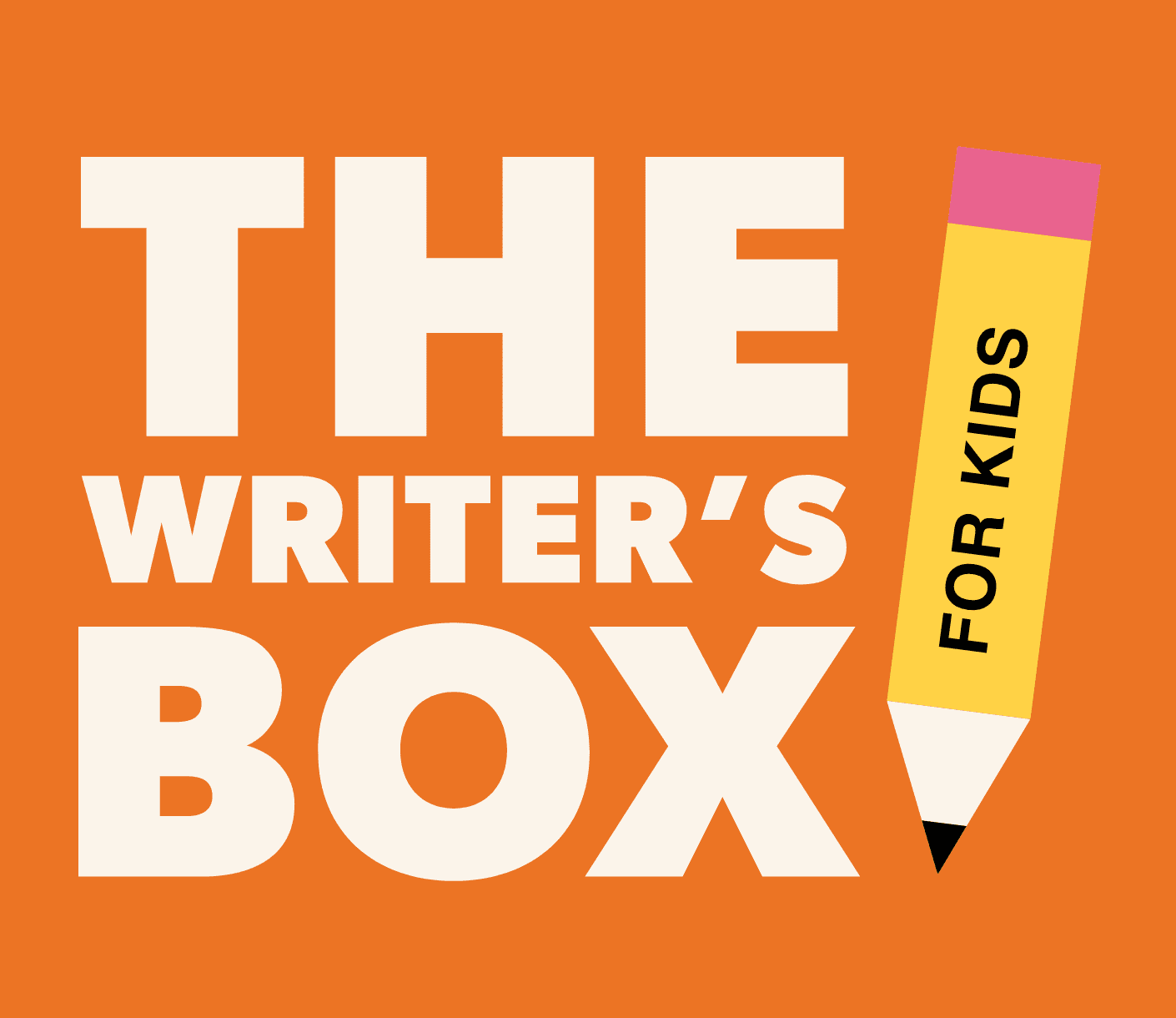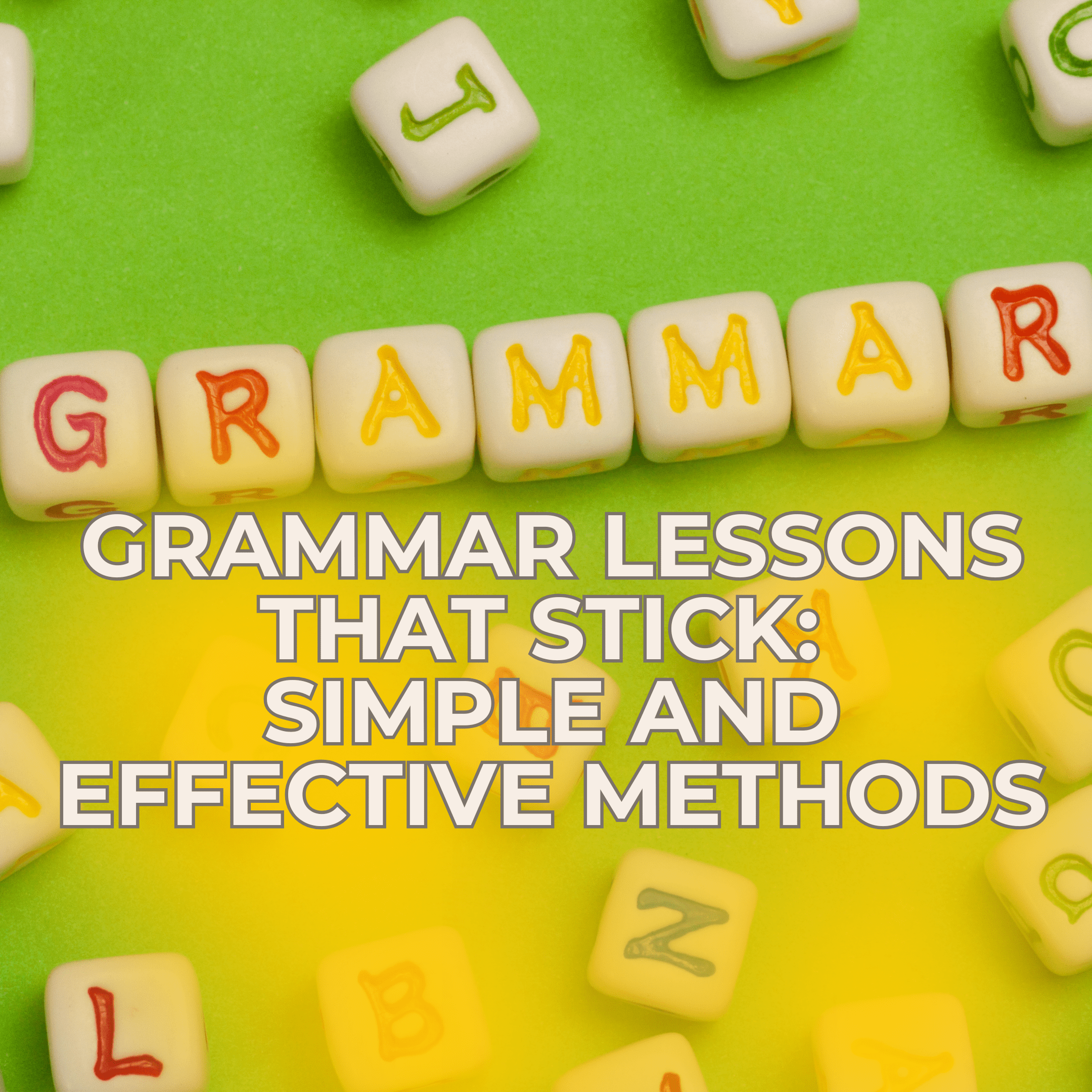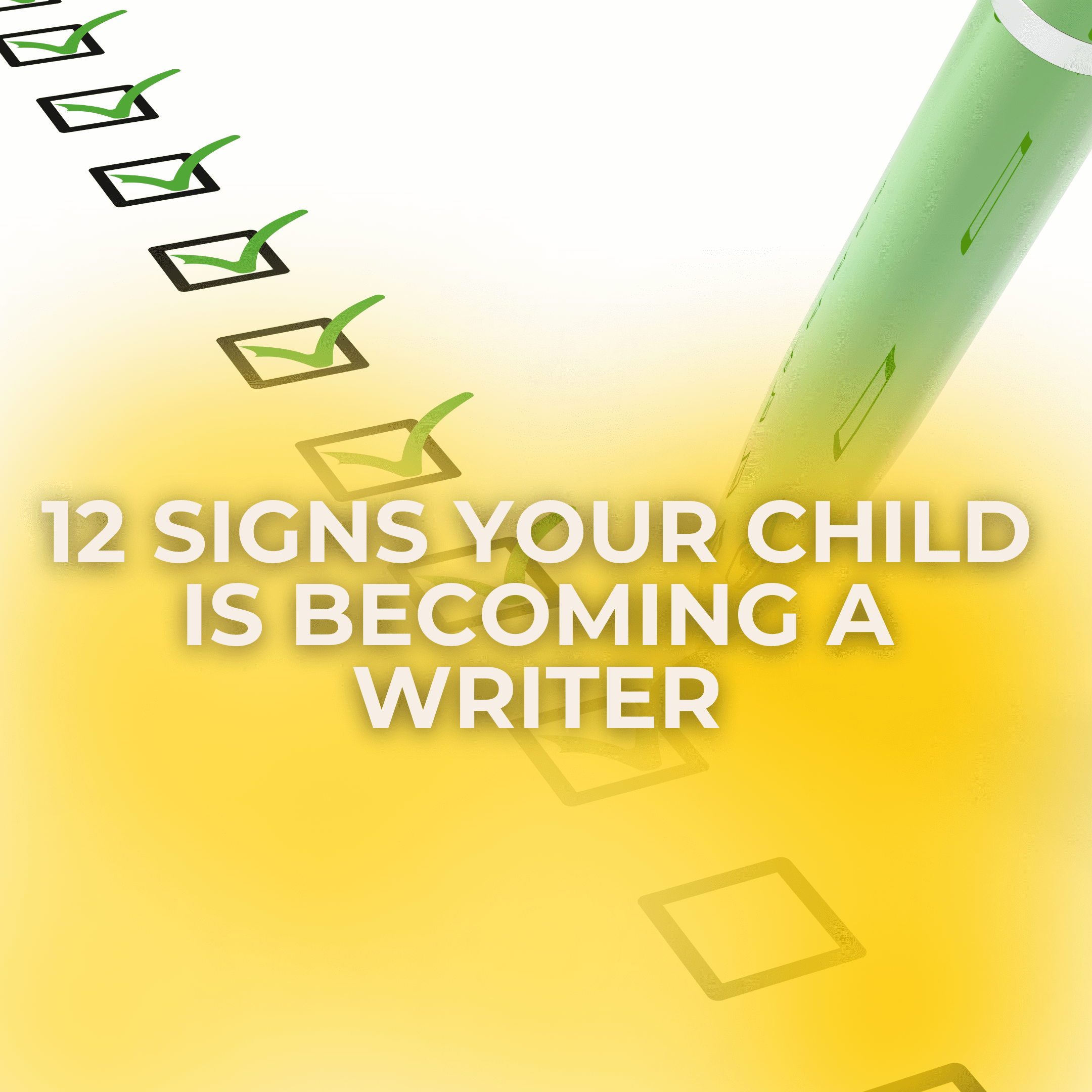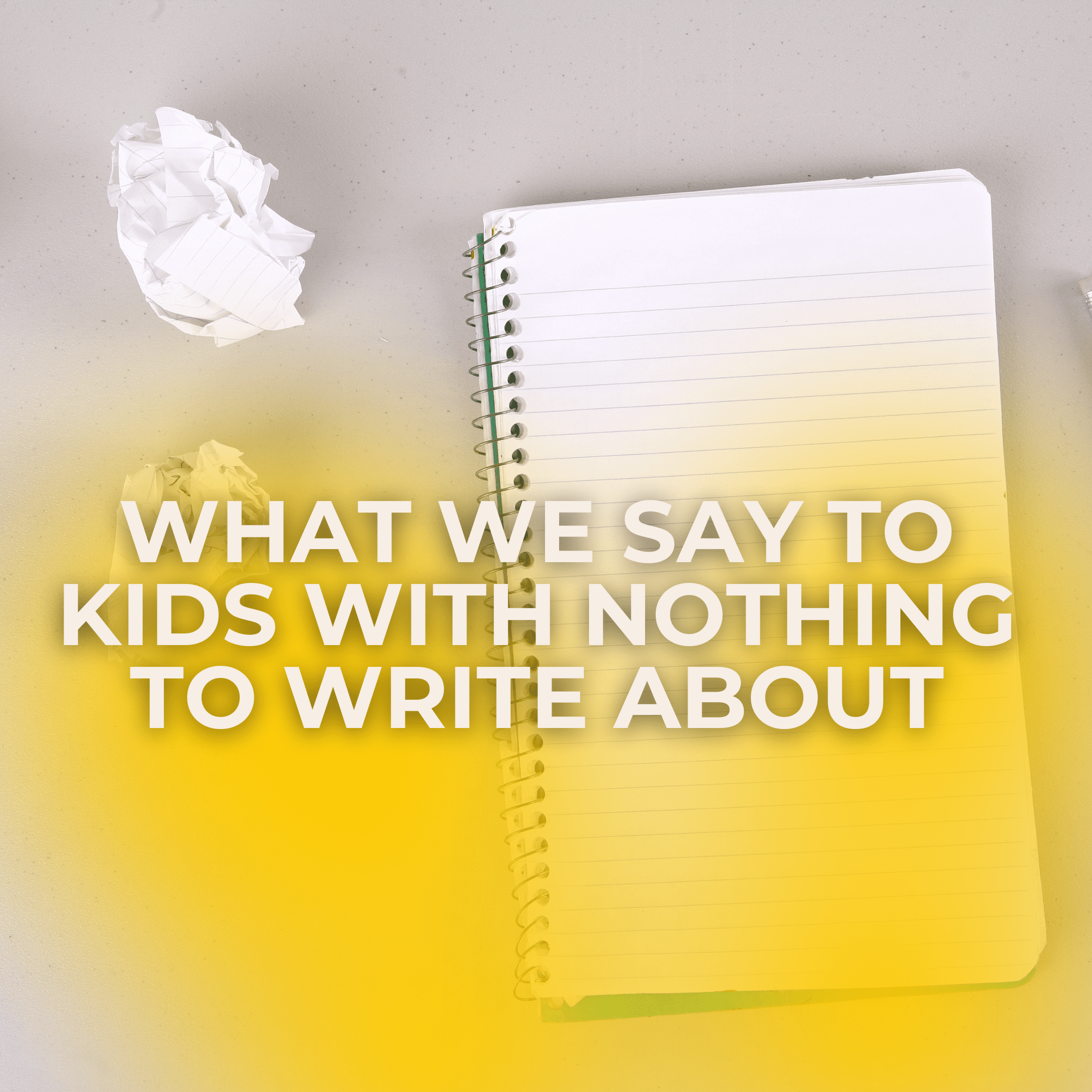I wasn’t surprised when my oldest daughter Lauren said she planned to be a famous author someday.
At nine years old, she and her friend Maddie were writing ghost stories together every playdate. She was also writing plays with her friend Billy that they performed for kids on the playground at lunch.
I was so busy with three other little ones, but of course I wanted to support her dream. How do you help the kid that wants to be an author someday?

If you’ve ever asked yourself that question, this week’s newsletter is the quick answer I needed 19 years ago . . .
FOR THE PARENT OF AN ASPIRING AUTHOR
1. Connect your writer with other kids who love to write.
This is number one on the list because it is honestly the most helpful thing you can do. Finding kids who love writing too will push them, encourage them, and give them a measuring stick for developing their own skill.
Obviously, a writing group isn’t as easy to find as a dance class or a soccer team, but if you stay on the lookout–you’ll find ways!
Lots of times, writers gravitate to each other. If your child is lucky enough to have found a writing friend, make it easy for them to get together.
If you live in our neighborhood, sign them up for our summer writing camp! (We have 18 summers of proof that this experience is powerful.) If you have a teen writer, ask us about joining Write On! Superstars.
Writing can be isolating and lonely, but it doesn’t need to be. The more you can make it social for them, the better!
2. Keep the reading books coming.
The “danger” with having a kid who loves to read and write is that we take their reading life for granted. Instead, help your aspiring writer keep their reading life organized. Have a standing date with the library. Help them make a list of books that are “on deck” after their current read is finished. Be a researcher of quality books and keep them coming.
We are huge fans of Aimee from @keepabookout on Instagram. Follow her! She created all the reading lists included with our Writer’s Boxes.
3. Be on the lookout for kid writing contests and publication opportunities.
Submitting writing is what real authors DO. Oftentimes, local libraries and bookstores have contests. A good one going on right now is: PBS KIDS. Another group that offers lots of fun contests throughout the year is OPERATION LITERACY.
Experiences like these are good for writers because it gives them a DEADLINE to help them take pieces to the finish line. They also learn to write to an audience, use specific guidelines, and write query letters.
4. Think 10,000 hours.
Have you heard it takes at least 10,000 hours to become really good at something? When it comes to your child’s writing aspirations, keep this in mind! Worry WAY more about giving your child lots of time and space to write than you do about getting them “published.” (Despite what I said in number 3, this is still very true.)
Most professional writers we’ve met are immensely grateful their first, second, even third novels were NOT published. You wouldn’t expect your ten year old dancer to join a professional ballet company or for your young football player to join the NFL. It takes time and growth to learn the craft.
5. Take their writing seriously.
We know you already do this because you are reading this newsletter! But just remember that aspiring authors don’t like their writing to be considered “cute.” Funny? Yes. Clever? Yes? Heart stopping? Of course.
Give them your honest feedback as a reader. Let them know WHY you like it so they will know what to do again. Ask them questions so they can anticipate how to revise for their readers.
But never call it cute:)
THE REST OF THE STORY:
So what happened to my aspiring author? Through trial and error, I did all of those things on that list as best I could. Lauren now works as a copywriter. She has been published in many magazines and is almost finished with her first novel.
When she lands an agent and publishes a book, this proud mama will let you know all about it!
Sending best wishes to your aspiring authors!














